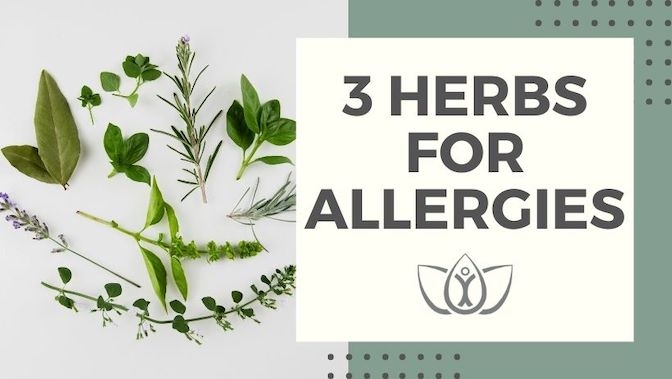Seasonal allergies, also referred to as "hay fever," are experienced by roughly 8% of Americans every year. The sneezing, coughing, itchy nose, and watery eyes brought on by the body's overreaction to outdoor allergens can cut a person off from nature almost completely.
Fortunately, nature has a way of redeeming itself. Through the use of nature's herbs, an allergy sufferer can find great relief. If you are among the millions of Americans who face the misery of seasonal allergies every year, it may be time to give these amazing herbs a try.
Herbs for Allergies
Here are the top 3 herbs we recommend for dealing with seasonal allergies:
Stinging Nettles
Often referred to simply as Nettles, the Stinging Nettle is a well-known herb that helps with seasonal allergies. The stinging nettle plant earns its name by causing a stinging sensation when its fine hairs come into contact with the skin. By crushing the herbs, we get rid of the "sting" and are left with a wonderful herb that can be taken as a tea, in a tincture, or in capsules. It can even be used in topical creams to soothe the skin. Nettle has anti-inflammatory properties that not only soothe the lungs and nasal passages, but can also help with stiff joints and muscles.
Mullein
Mullein is often recommended for a person who is dealing with any kind of lung issues. It is a favorite choice among seasonal allergy sufferers. It is also a top pick among those who deal with asthma, sinusitis, and congestion. It is very beneficial for those who have long-lasting issues such as whooping cough or bronchitis. Mullein is an expectorant, meaning it helps the body release phlegm and congestion. At the same time, it is a demulcent, soothing irritated tissues.
Fenugreek
Fenugreek has been used in both Traditional Chinese Medicine and in Ayurveda for thousands of years. It has many health benefits including aiding in digestion. Many natural health practitioners believe that when there is congestion in the digestive track, there is also a tendency for congestion in the sinus passageways. Using fenugreek to calm upset digestion can also open up the upper respiratory system, helping with easier breathing and alleviating allergy symptoms. Fenugreek was used in ancient Egypt to help with a variety of respiratory issues including bronchial congestion and coughs. It is an effective expectorant, has soothing anti-inflammatory properties, and can reduce fevers.
Learn More About Herbs
Are you interested in learning more about herbs and how they can impact both respiratory issues as well as many other aspects of your health? Trinity School of Natural Health offers a master herbalist class in which you will discover the historical uses of herbs, their nutritional qualities, delivery methods, and so much more. Enrollment is now open for the September 30, 2019 program.


